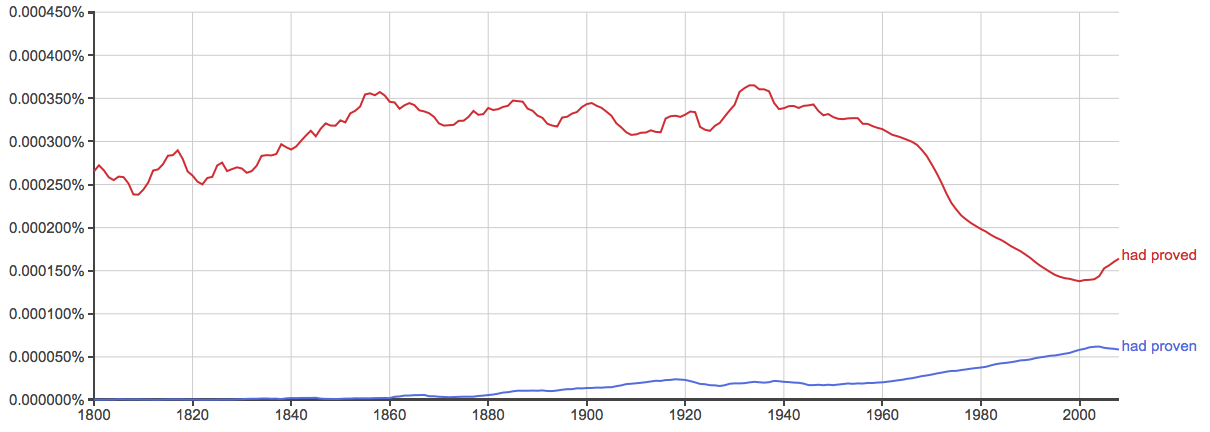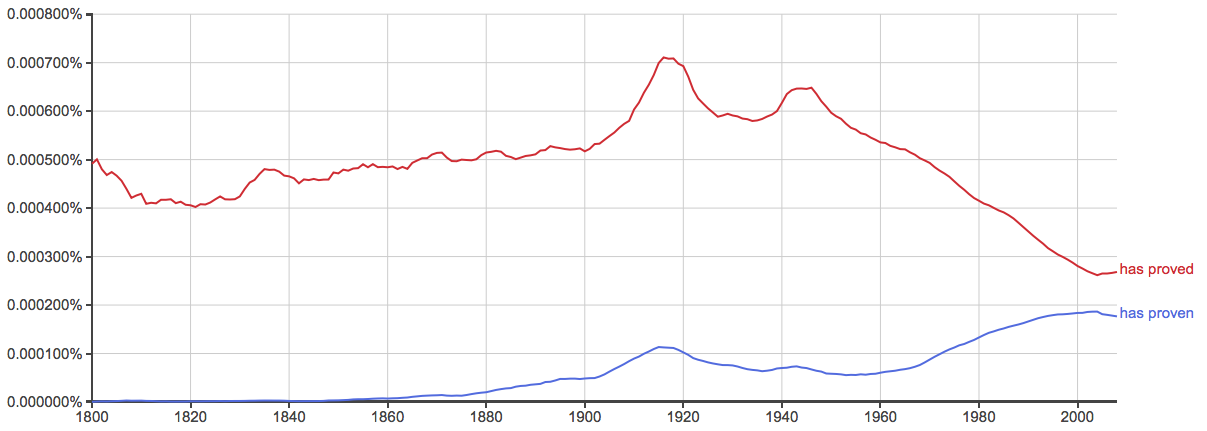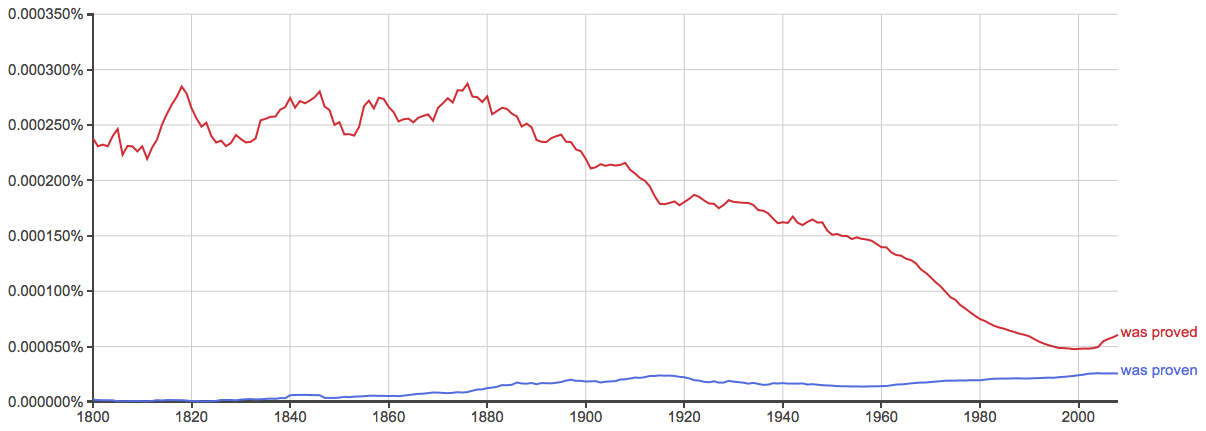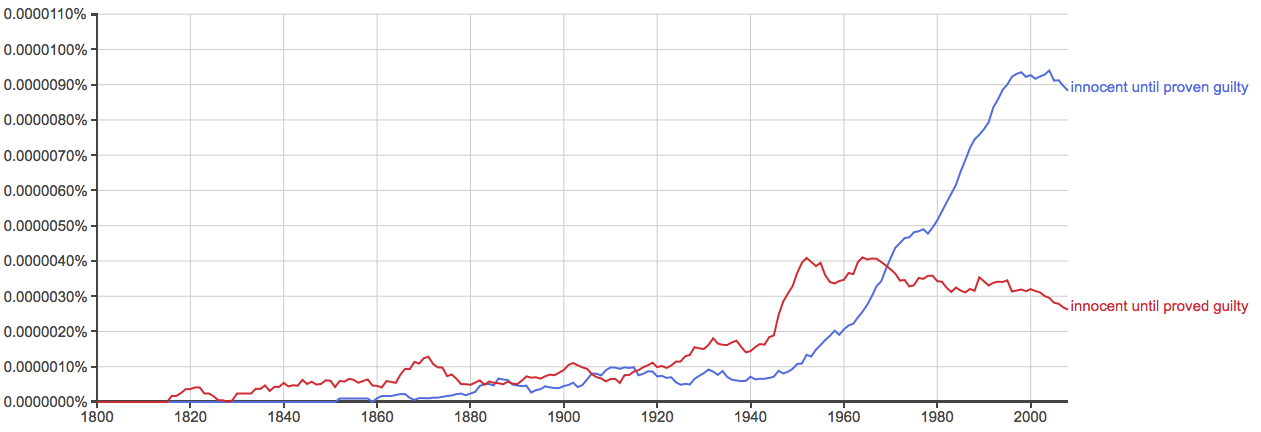Verb conjugation is difficult even for experienced English writers. There are nearly 200 irregular verbs in English, so it would be an ambitious endeavor to try to memorize them all.
Prove is one such irregular verb. Proved and proven both see use in this verb’s past tense conjugations, but which one is the better choice?
What is the Difference Between Proved and Proven?
In this post, I will compare proved vs. proven. I will show you example sentences for each variation of this verb and guide you on the best choice for your writing.
Plus, I will outline a helpful memory tool that you can use as a trick to remember whether to use proved or proven in a sentence.
When to Use Proved
 What does proved mean? Prove is a past tense form of the verb prove, which means to show evidence for something.
What does proved mean? Prove is a past tense form of the verb prove, which means to show evidence for something.
Proved is the simple past and past participle form of this verb, as you can see from the sentences below,
- Yesterday, Eric proved his impressive skills by outselling the rest of the sales force combined.
- “I have proved you wrong through indisputable logic!” claimed the debate team leader.
- But how do you attract high-quality team members before you’ve proved your company’s viability through funding, revenue or customers? –The Wall Street Journal
Proved is useful for all past tense conjugations of prove, including the following tenses,
- Simple past: I/we/you/he/she/they proved
- Past participle: I/we/you/he/she/they have proved
- Past perfect: had proved
Proved never functions as an adjective: only a verb.
When to Use Proven
 What does proven mean? Proven is the adjective form of proved, denoting something that has been demonstrated.
What does proven mean? Proven is the adjective form of proved, denoting something that has been demonstrated.
Here are a few examples,
- Major league baseball managers entrust their late-inning bullpen work to proven performers who will get outs without allowing runs.
- “I don’t want Carol as an administrative liaison; she is a proven liability,” said Marcus.
- There is no proven treatment, he said. It is not clear that plasma exchange helps. –The New York Times
Occasionally, some writers use proven instead of proved as the past participle form of prove. This is much more common in American English than British English (In British English, proved remains the sole standard past participle.)
For example,
- “I have proven my critics wrong beyond any shadow of a doubt,” asserted the comeback player of the year.
- “I resent this line of questioning, because I have already proven these accusations to be false,” said the defendant.
As the Oxford English Dictionary states,
For complex historical reasons, prove developed two past participles: proved and proven. Both are correct and can be used more or less interchangeably.
As with most usage debates, not everyone agrees. For instance, The AP Stylebook states,
Use proven only as an adjective: a proven remedy.
That said, the usage of proven as past participle has grown in recent years.



These charts graph proven vs. proved in English books since the year 1800. Proved is still ahead across World English, but the two uses might eventually meet.
As for today’s writing, especially formal writing, it is best to stick to the traditional rule that AP Style lays down.
- Use proved as a past participle.
- Use proven as an adjective.
It should be noted, however, that the phrase innocent until proven guilty is so common that it must count as an exception to this rule. As you can see below, in this specific phrase, proven is much more common than proved.

Trick to Remember the Difference
 If you need an adjective, proven is your only choice. Proved never functions as an adjective. This is an easy choice.
If you need an adjective, proven is your only choice. Proved never functions as an adjective. This is an easy choice.
Similarly, if you need a simple past verb, proved is the only correct word. Another easy choice.
For past participles, though, the situation is not so clear. Both proved and proven are commonly used as past participles. Even though proved has a longer history as a past participle and is used more often, there is no universal rule against using proven. Some places discourage its use, while others do not.
With British audiences, proved is still probably a better choice since it is much more widely used than proven. You should probably also default to proved with American audiences since major U.S. style guides like The AP Stylebook still make the preference quite clear.
Since proved and default both contain the letter D, you should find it easy to remember that proved is the default past participle of prove.
Summary
Is it proven or proved? The confusion around these two words surrounds their use as a past participle.
- Proved is the simple past tense and past participle of the verb prove, which means to show evidence for something.
- Proven is the adjective form of this word, and can be used as a past participle in some instances.
- Most places prefer proved as a past participle and proven as an adjective.
Contents
